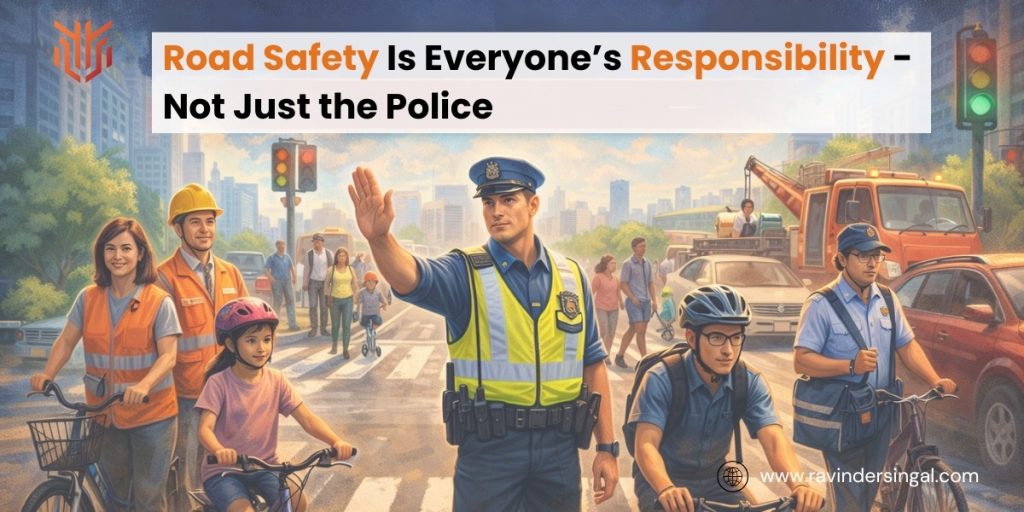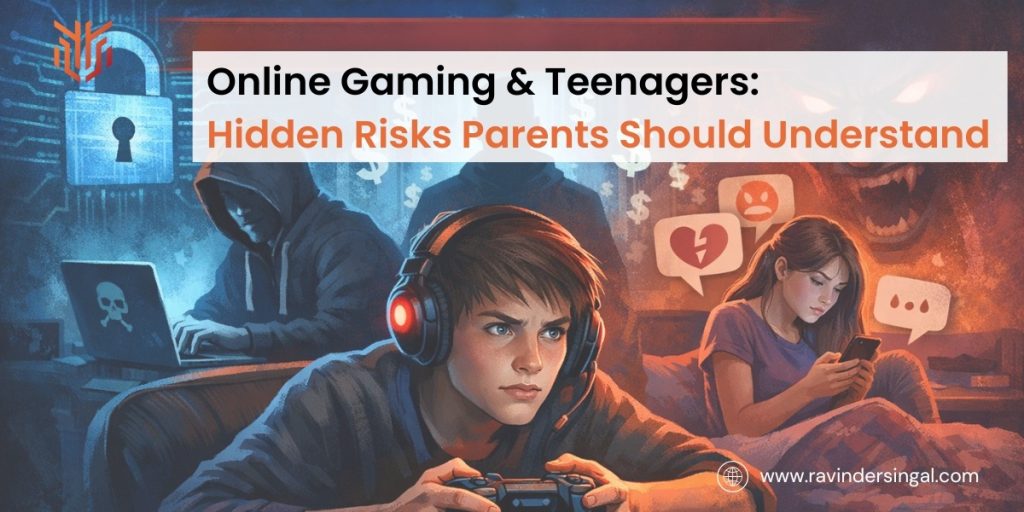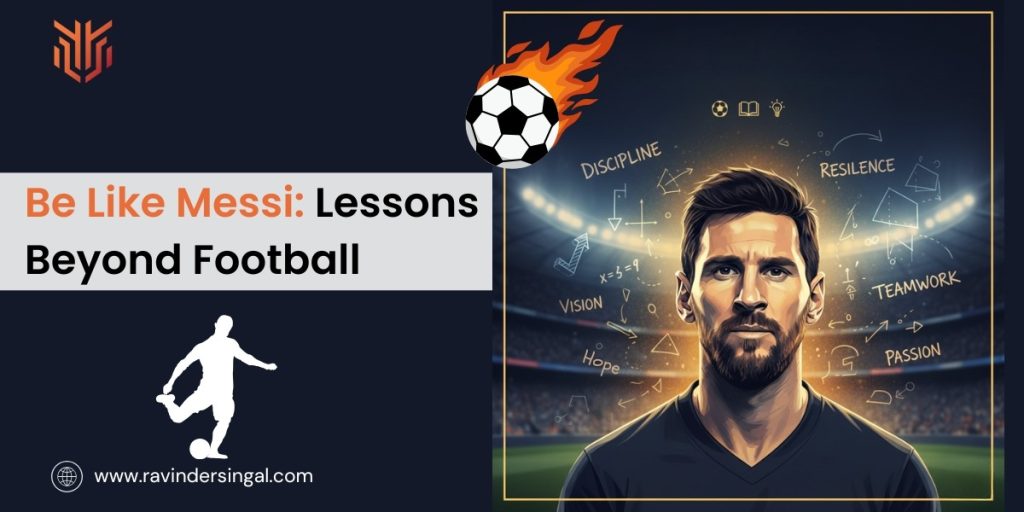How to Spot Early Signs of Drug Addiction in Youth
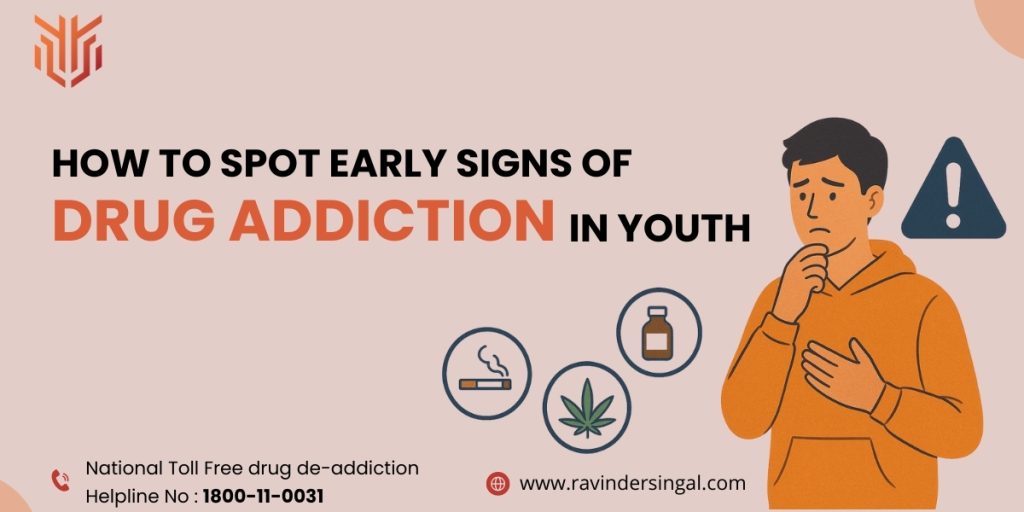
Drug addiction is one of the most pressing challenges of our times, and unfortunately, it often starts silently. For many families, the realization that their child or teenager is struggling with substance abuse comes far too late. By the time addiction becomes visible, it has already taken a toll on the young person’s health, academics, relationships, and future.
Recognizing the early signs of drug addiction in youth is essential for parents, educators, and communities. This blog aims to shed light on the subtle behaviors, physical changes, and emotional red flags that indicate possible drug use among teenagers.
Drawing from my experience as a police officer, trainer, and father, I’ve seen firsthand the devastating consequences of drug abuse when not addressed early. I have also organized Operation Thunder in Nagpur city-a focused drive against drugs-and my thoughts here are not just theoretical but rooted in practice. My goal is to empower families with knowledge so they can detect drug abuse early and take proactive steps to protect their children’s well-being.
Why It’s Crucial to Identify Drug Addiction Early
The teenage years are a time of exploration, identity-building, and emotional highs and lows. However, this phase also makes youth vulnerable to peer pressure, curiosity, and unhealthy coping mechanisms. Studies suggest that those who start using drugs at a younger age are more likely to develop long-term addiction problems.
Early intervention can:
- Prevent permanent brain and body damage.
- Help teens receive counseling or rehabilitation at a stage when recovery is easier.
- Save families from the emotional and financial toll of severe addiction.
- Foster stronger parent-child relationships through understanding and support.
By learning how to identify drug addiction in kids and teenagers, parents can change the trajectory of their child’s life.
Behavioral Early Signs of Drug Addiction in Youth
Behavioral changes are often the first indicators that something is wrong. If your teenager starts behaving in ways that feel out of character, take notice.
1. Sudden Mood Swings and Irritability
While some moodiness is normal during adolescence, intense or frequent mood swings can indicate deeper issues. A teen experimenting with drugs may:
- Become unusually aggressive or withdrawn.
- Display sudden bursts of anger or sadness.
- Seem emotionally distant or indifferent to family interactions.
2. Secretive or Suspicious Behavior
Teens struggling with drug use often try to hide their activities. Look out for:
- Locked doors and hidden spaces in their rooms.
- Avoidance of questions or vague answers.
- Sudden changes in social circles or reluctance to introduce friends.
3. Declining Academic Performance
Drug use impacts focus, memory, and motivation. Warning signs include:
- Poor grades or skipped assignments.
- Disinterest in school activities.
- Frequent absenteeism or excuses to skip classes.
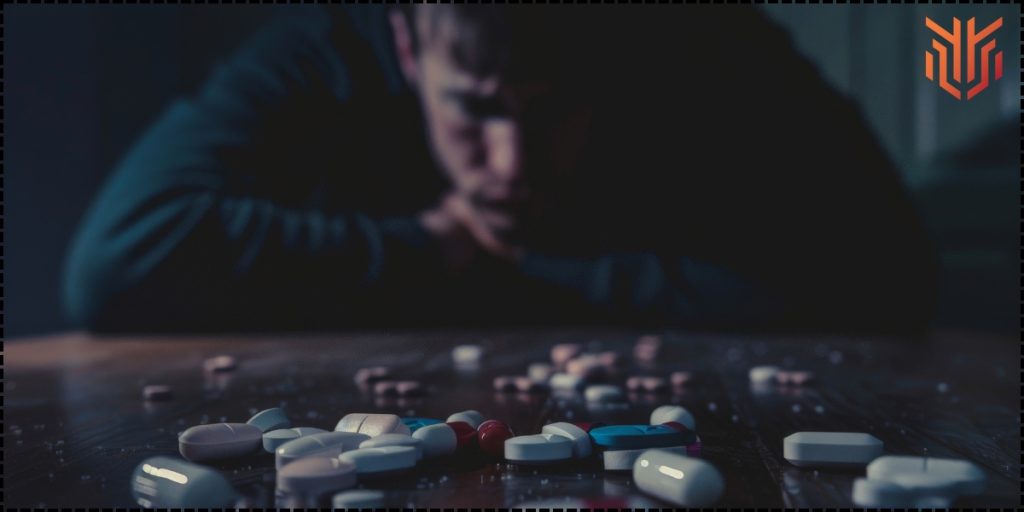
Physical Symptoms of Drug Use in Teenagers
Physical changes are strong clues when trying to detect drug abuse early. Parents should stay alert to:
- Bloodshot eyes or unusually dilated or constricted pupils.
- Frequent nosebleeds (common with drugs like cocaine).
- Sudden weight changes, either loss or gain.
- Poor personal hygiene and neglected grooming.
- Unexplained injuries or frequent accidents.
- Unusual smells on clothing, breath, or rooms (marijuana, smoke, or chemicals).
Emotional and Psychological Signs
Teens battling drug addiction may struggle to manage their emotions, leading to:
- Anxiety or paranoia, especially after using substances.
- Loss of interest in hobbies they once loved.
- Sudden bursts of confidence or euphoria followed by withdrawal.
- Difficulty sleeping or sudden changes in sleep patterns.
Environmental and Social Warning Signs
Changes in surroundings and social dynamics often signal deeper struggles. Watch if your teen:
- Starts hanging out with a new, secretive group of friends.
- Spends too much time in isolation, avoiding family.
- Has unexplained cash shortages or missing valuables at home.
- Brings home drug paraphernalia like rolling papers, pipes, or small bags.
Parents should not dismiss these changes as “just a phase.”
How Parents Can Start Conversations About Drug Use
Spotting early signs of drug abuse is just the first step. The next is approaching your child with empathy, not judgment:
- Choose a calm, private space when your child is sober.
- Stay composed-avoid shouting or blame.
- Express concern for their well-being, not anger.
- Ask open-ended questions.
- Seek professional help early if needed.
The Importance of Community Awareness
Families cannot fight this battle alone. Schools, neighborhoods, and communities play a crucial role. Effective measures include:
- School-based awareness programs on drug risks.
- Parent workshops to build detection skills.
- Community policing initiatives to reduce drug supply.
- Recreational programs offering healthy outlets.
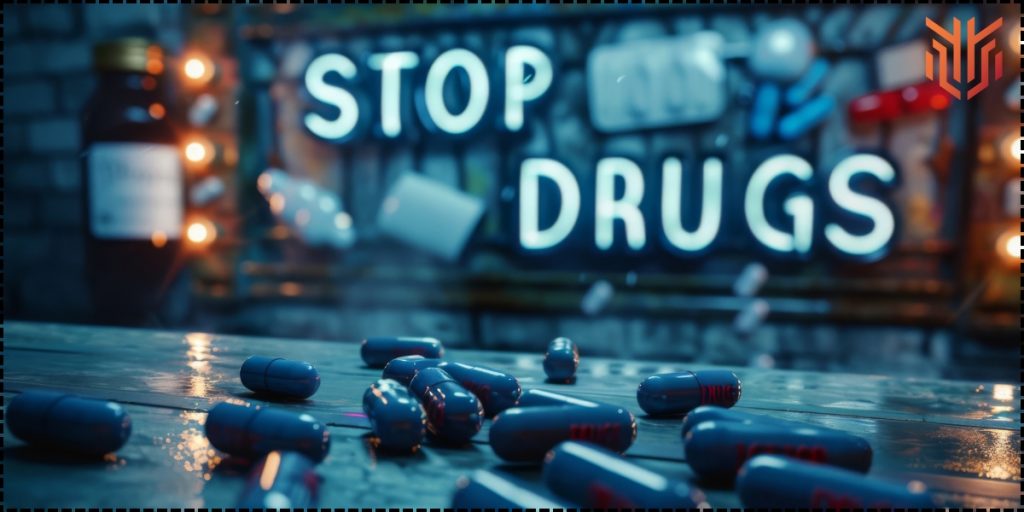
Role of Schools and Teachers
Teachers are often first to notice changes. They should be trained to identify:
- Sudden drops in grades.
- Defiant or withdrawn behavior.
- Signs of exhaustion or intoxication.
- Skipping classes or frequent unexplained absences.
Collaboration between schools, families, and authorities makes prevention stronger.
Parental Guide to Drug Addiction Signs
- Behavioral: Secrecy, aggression, disinterest in school.
- Physical: Bloodshot eyes, weight change, frequent illness.
- Emotional: Paranoia, withdrawal, mood swings.
- Environmental: Missing valuables, new friends, drug items.
Observation with empathy is key.
Practical Tips for Parents
- Create a judgment-free home environment.
- Educate early with real stories, not fear.
- Monitor online activity carefully.
- Set clear boundaries on money and outings.
- Lead by example-don’t misuse substances yourself.
Sports as a Shield Against Addiction
With my professional policing experience and my role as a father, I can say with conviction: sports play a critical role in preventing addiction. Outdoor activities make children physically strong, mentally sharp, and spiritually resilient. Parents should encourage sports as a natural protection against negative influences.
Children must also learn to respect their health and appearance. Confidence built through fitness is far stronger than the false confidence drugs pretend to offer.
Family Environment Matters
I have seen cases where disturbed families pushed children toward drugs. My request to parents: resolve conflicts away from children. Our words and actions shape their emotional stability. A peaceful home is often the first line of defense against addiction.
Also Read: Why Crowd Management Matters During Celebrations – Dr. Ravinder Singal
Final Thoughts
As someone who has spent 29 years in policing, organized operations against drugs, and guided families, I urge parents and communities to act early. Drugs are the worst enemy of youth and must be prevented under all circumstances.
“The greatest gift we can give our children is not just love, but the strength to say NO when life tempts them with destruction.”
Recognizing the early signs of drug addiction in youth is not about policing every move-it is about protecting their future. Let’s replace fear with awareness, judgment with understanding, and silence with meaningful conversations.
Through sports, supportive families, and vigilant communities, we can safeguard the next generation. Together, we can ensure that our children grow up strong, confident, and free from addiction.
For more resources on youth safety and drug prevention, visit https://ravindersingal.com/.
Follow me on Social Media! Stay Connected & Stay Ahead!
📘 Facebook || 📸 Instagram || 💙 Twitter || 💼 LinkedIn || 📍 Pinterest || ▶️ YouTube
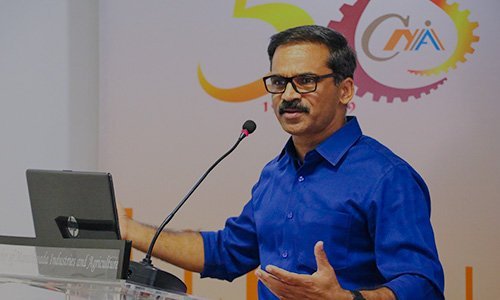
Quitters Don’t Win and Winners Don’t Quit.
Ironman | Deccan Cliffhanger | Comrade Legend Finisher | Motivational Speaker | Writer | Endurance Athlete



